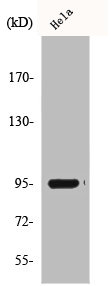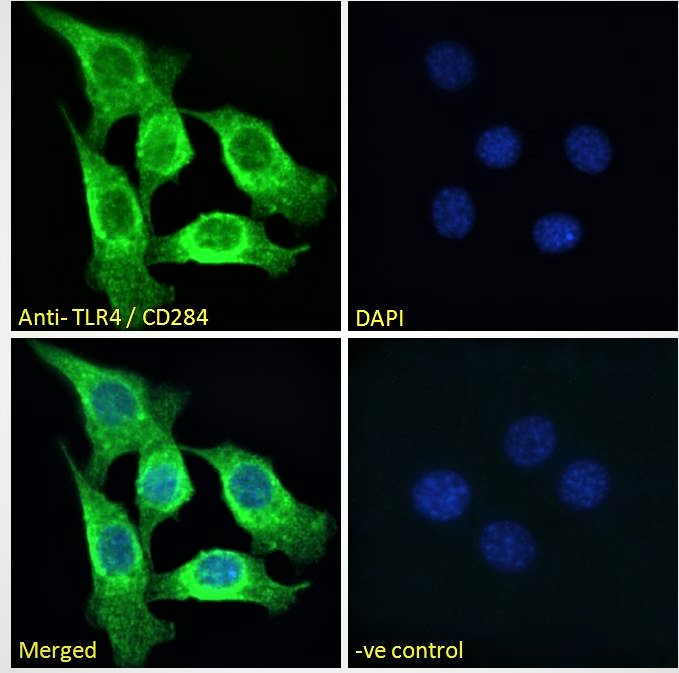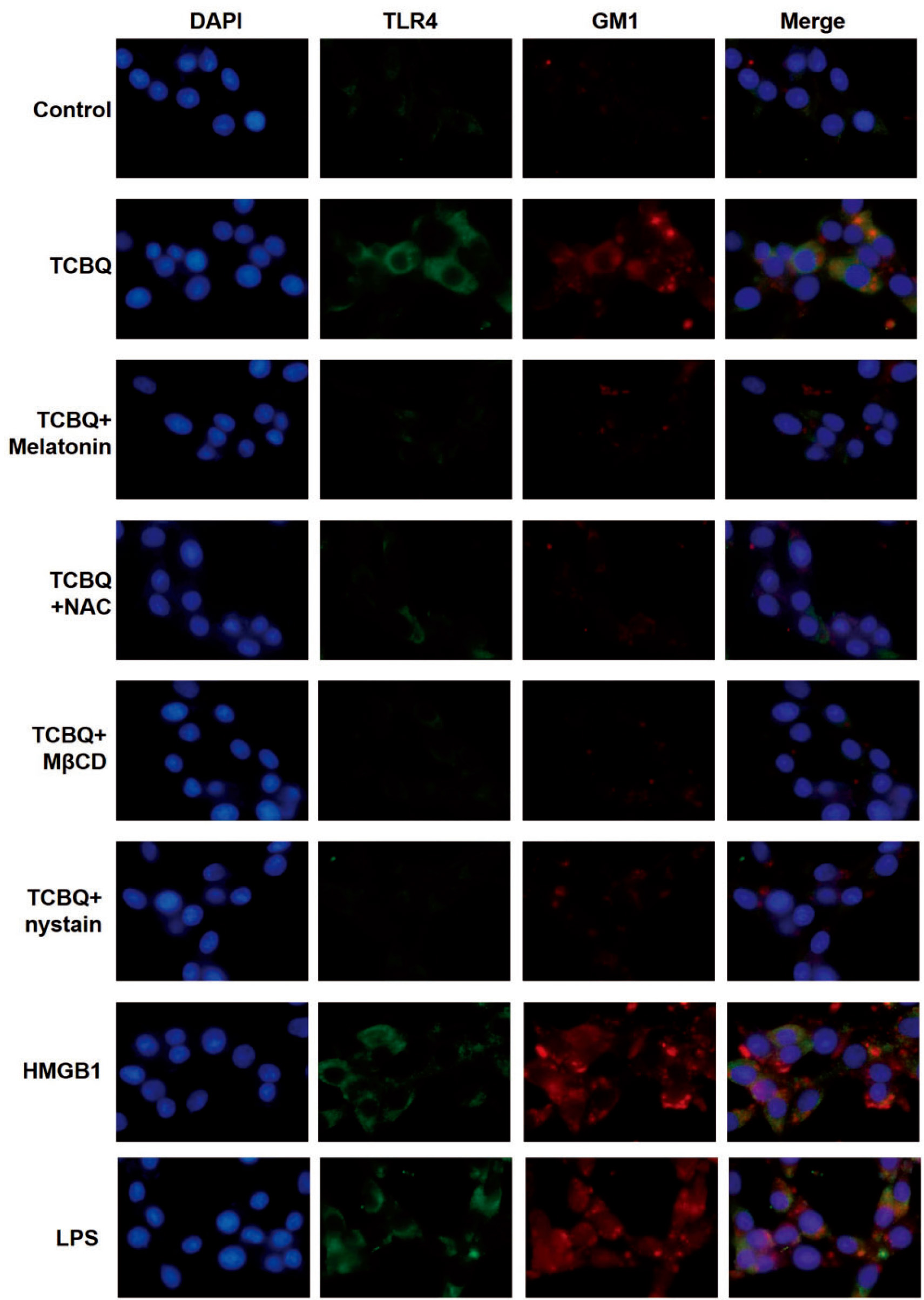anti-TLR4 (human), mAb (2E11)
IAX-400-003
ApplicationsFlow Cytometry, ImmunoCytoChemistry
Product group Antibodies
ReactivityHuman
TargetTLR4
Overview
- SupplierInnaxon
- Product Nameanti-TLR4 (human), mAb (2E11)
- Delivery Days Customer2
- ApplicationsFlow Cytometry, ImmunoCytoChemistry
- CertificationResearch Use Only
- ClonalityMonoclonal
- Clone ID2E11
- Concentration1 mg/ml
- Estimated Purity>95%
- Gene ID7099
- Target nameTLR4
- Target descriptiontoll like receptor 4
- Target synonymsARMD10, CD284, TLR-4, TOLL, toll-like receptor 4, hToll, homolog of Drosophila toll, toll like receptor 4 protein
- IsotypeIgG1
- Protein IDO00206
- Protein NameToll-like receptor 4
- Scientific DescriptionMonoclonal Antibody. Recognizes the extracellular domain of human TLR4. Does not cross-react with mouse TLR4. Other species not tested. Applications: FACS, ICC. Isotype: Mouse IgG1. Liquid. In PBS, sucrose, PEG, 0.09% sodium azide. TLR4 (Toll-like Receptor 4) is a member of the Toll-like receptor (TLR) family which plays a fundamental role in pathogen recognition and activation of innate immunity. It was the first TLR identified TLR in mammals and most studied member of the TLR family. TLR4 recognizes the active lipid A component of lipopolysaccharide (LPS) from Gram-negative bacteria in conjunction with LY96 (also referred to MD-2), CD14 and LPS-binding protein (LBP) and consequently mediates the innate immune response to bacterial lipopolysaccharide (LPS). Additionally, it is also involved in LPS-independent responses triggered by endogenous DMAPs, such as heat shock proteins (HSPs) or HMGB1. TLR4 signals via MYD88, TIRAP and TRAF6, leading to NF-kappaB activation, cytokine secretion and the inflammatory response in various cell types. In complex with TLR6, it was shown to promote sterile inflammation in monocytes/macrophages in response to oxidized low-density lipoprotein (oxLDL) or amyloid-beta 42. TLR4-mediated inflammation, triggered by exogenous or endogenous ligands, is involved in several acute and chronic diseases, having a pivotal role as amplifier of the inflammatory response. The potency with which this TLR activates inflammatory pathways makes it an ideal target for therapeutic intervention and adjuvant development. A broad range of clinical studies have examined the adjuvant activity of TLR4 activators in vaccines against infectious and tumor antigens. This antibody detects human TLR4 in the absence and presence of MD2 (tested on THP-1 human macrophages). It does not block LPS-mediated activation of human TLR4 (as tested by NFkappaB activation). - TLR4 (Toll-like Receptor 4) is a member of the Toll-like receptor (TLR) family which plays a fundamental role in pathogen recognition and activation of innate immunity. It was the first TLR identified TLR in mammals and most studied member of the TLR family. TLR4 recognizes the active lipid A component of lipopolysaccharide (LPS) from Gram-negative bacteria in conjunction with LY96 (also referred to MD-2), CD14 and LPS-binding protein (LBP) and consequently mediates the innate immune response to bacterial lipopolysaccharide (LPS). Additionally, it is also involved in LPS-independent responses triggered by endogenous DMAPs, such as heat shock proteins (HSPs) or HMGB1. TLR4 signals via MYD88, TIRAP and TRAF6, leading to NF-kappaB activation, cytokine secretion and the inflammatory response in various cell types. In complex with TLR6, it was shown to promote sterile inflammation in monocytes/macrophages in response to oxidized low-density lipoprotein (oxLDL) or amyloid-beta 42. TLR4-mediated inflammation, triggered by exogenous or endogenous ligands, is involved in several acute and chronic diseases, having a pivotal role as amplifier of the inflammatory response. The potency with which this TLR activates inflammatory pathways makes it an ideal target for therapeutic intervention and adjuvant development. A broad range of clinical studies have examined the adjuvant activity of TLR4 activators in vaccines against infectious and tumor antigens. This antibody detects human TLR4 in the absence and presence of MD2 (tested on THP-1 human macrophages). It does not block LPS-mediated activation of human TLR4 (as tested by NFkappaB activation).
- ReactivityHuman
- Storage Instruction-20°C,2°C to 8°C
- UNSPSC41116161









![FACS analysis of human peripheral blood monocytes using GTX75742 TLR4 antibody [HTA125].](https://www.genetex.com/upload/website/prouct_img/normal/GTX75742/GTX75742_5573_FACS_w_23061322_280.webp)